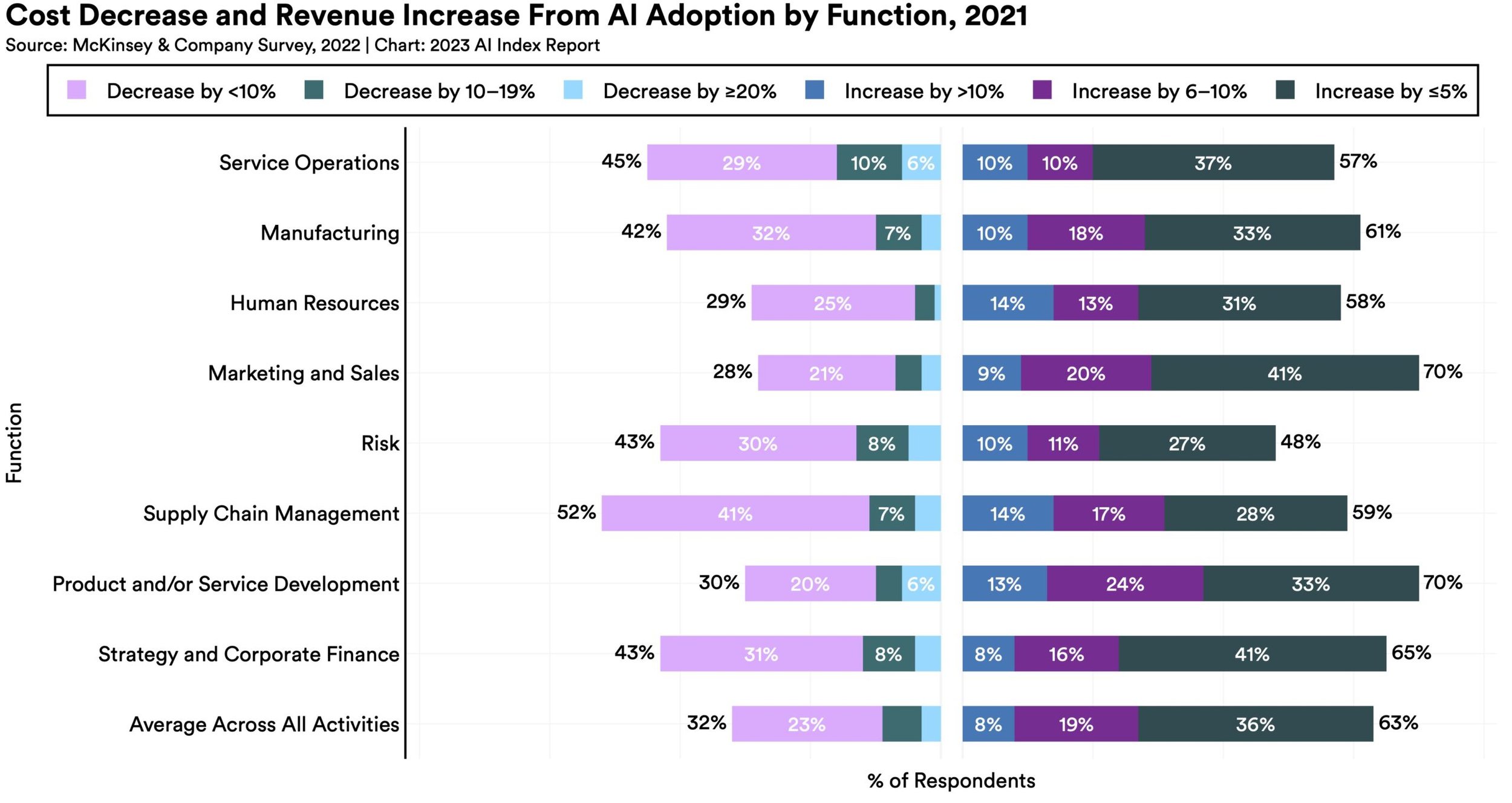As Employers Adopt AI – Build a Strong Foundation
While debate on AI’s labor market impact rages, there is no debate that employers are attracted to AI and its impact on cost savings, revenue generation, and product improvement. When career development professionals know more about why, we can better advise our students and clients. As reflected in the National Health Interview Survey, mental health foundations need strengthening like this New Mexico “bungalow.”
We need stronger post-pandemic foundations than this to handle today’s career transitions…
Employers are adopting AI for two big reasons, impact on the bottom line and the shortage of workers.
AI Saves Employers Money and Generates Revenue
You don’t need an MBA to know that in order to survive and grow, businesses (employers) must increase income and reduce expenses. AI already helps a broad spectrum of businesses do that. In a McKinsey Report completed before ChatGPT’s 3.5 release in November 2022, you can see the scope and depth of benefits across many types of businesses.
Source: 2023 AI Index Report from the Stanford Institute for Human-Centered Artificial Intelligence (HAI).
Here is another way to look at it:
Human Resources: 29% of respondents reported AI reduced costs, while 58% saw a revenue increase,
Marketing and Sales: 28% of respondents reduced costs, while 70% saw a revenue increase,
Risk: 43% of respondents reduced costs, while 48% saw a revenue increase,
Strategy and Corporate Finance: 45% of respondents reduced costs, while 65% increased revenue, and
Supply Chain Management: 52% of respondents reduced costs, while 59% increased revenue.
Labor Tightness
Tightness in the labor market and resulting higher wages are another driver behind employers’ AI adoption. According to Lightcast, a number of factors contribute to labor tightness.
Historically low U.S. labor participation rate (some related factors below),
Poor mental health, rising rates of self-reported depression among 18 – 39-year-olds,
Rise in drug addiction and overdoses,
Demographic cliff (the number of 18-year-olds in the U.S. will drop quickly after high school Class of 2025, impacting training and postsecondary enrollment), and
Ineffective immigration policy.
There will be fewer workers and fewer educated workers in the near future.
Source: Levanon, Gad. “This is what happens when an unstoppable force meets an immovable object: US Labor Market Outlook 2023” (Burning Glass Institute: March 2023)
On that cheerful note, what’s a career development professional to do?
Build a strong foundation
Without a strong mental health foundation and social support, individuals have trouble adapting to career transitions – including upskilling, reskilling, returning to school, or entering the workforce. Career Key’s expertise is in practical application of science and best practices of career counseling so we suggest…
Increase self-knowledge and self-efficacy
First, help individuals strengthen self-development skills such as self-knowledge and self-efficacy. We know successful career navigators know more about who they are, that they are constantly changing, and believe in their capacity to handle what happens next. Here are a few resources that can help,
Holland’s Theory of Career Choice (the Career Key approach)
Build up support
Second, you are part of your student’s or client’s support system. You want to help them avoid becoming overwhelmed and insecure about next steps. Use these research-based frameworks with others to make them aware of gaps in their support and ways to fill them.
Next month, we will look at AI impacts to occupations or their “exposure” as some researchers call it. What, if anything, do we know for sure about the future and how do we make sense of it for our students and clients?


